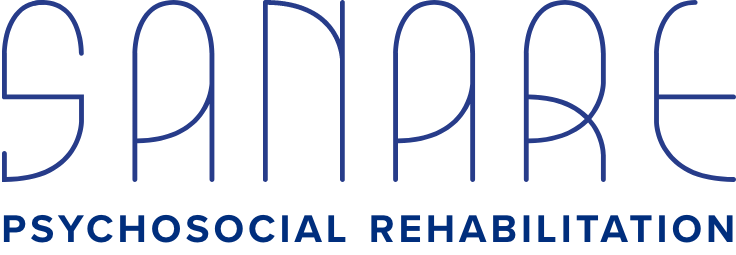
Eye Movement Desensitization & Reprocessing
EMDR
What is EMDR?
EMDR is a psychotherapy approach that helps individuals heal from the symptoms and distress that arise from traumatic experiences. It was developed by Francine Shapiro in the late 1980s and has since gained recognition for its efficacy in treating conditions such as:
Disturbing memories
Grief & Loss
How Does EMDR Work?
During an EMDR session, the therapist guides the client through recalling a traumatic memory while simultaneously engaging in bilateral stimulation. At Sanare, we have the option for either tactile or visual stimulation. This process is believed to facilitate the brain's natural healing mechanisms and enable the individual to reprocess the memory with reduced emotional intensity.
By targeting negative beliefs and somatic memories associated with past experiences and incorporating positive cognition, EMDR aims to promote psychological resilience and emotional well-being. This unique method can be tailored to each person's specific needs and has been shown to be effective in treating various mental health conditions.
Evidence Supporting EMDR
Numerous studies have examined the effectiveness of EMDR across different populations and types of trauma. Here are some key findings:
Effectiveness in PTSD: EMDR has been endorsed by organizations such as the American Psychiatric Association and the World Health Organization for treating PTSD. Research indicates that EMDR is as effective as Cognitive Behavioral Therapy (CBT) in reducing PTSD symptoms and often shows faster results.
Broad Applicability: Beyond PTSD, EMDR has shown promise in treating other conditions such as depression and anxiety disorders. Studies have demonstrated its efficacy in reducing symptoms and improving overall psychological well-being.
Neurobiological Mechanisms: Neuro-imaging studies have provided insights into how EMDR affects brain function. It appears to influence memory consolidation and emotional processing, leading to a reduction in the emotional charge of traumatic memories.
Long-Term Benefits: Research suggests that the benefits of EMDR are not only immediate but can also be sustained over time. This makes it a valuable option for individuals seeking lasting relief from distressing symptoms.
EMDR represents a significant advancement in psychotherapeutic treatments especially for trauma-related disorders. Its growing body of research supports its efficacy and applicability across various populations.
For more information please visit EMDRIA (EMDR International Association).
EMDR at Sanare
At Sanare, we integrate EMDR into a client’s treatment plan, when clinically appropriate. EMDR allows us target trauma, emotional blocks, or other situations that are causing emotional distress or getting in the way of psychosocial functioning. In conjunction with other PSR interventions it can allow clients to achieve their goals while working with the team at Sanare Psychosocial Rehabilitation.
